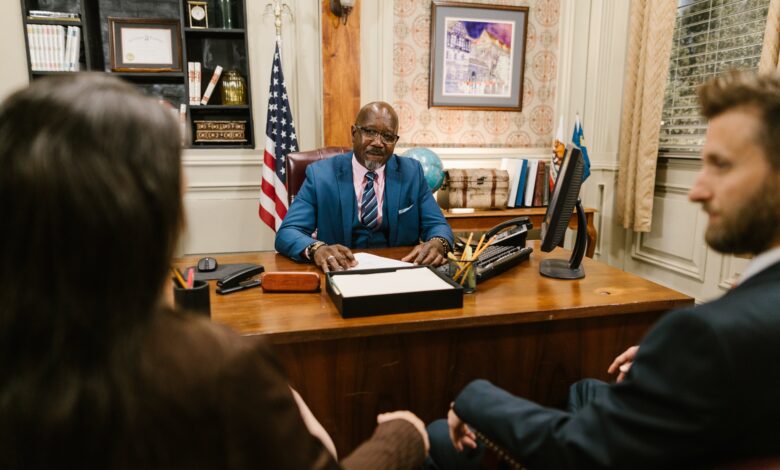Infamous Presidential Denial: A Deep Dive into NYT’s Revelations

In the annals of American history, sure presidential denials have grow to be synonymous with controversy and intrigue. The New York Times (NYT), a stalwart in investigative journalism, has frequently played a pivotal function in bringing those denials to light, unraveling the layers of deception and sparking public discourse. In this newsletter, we delve into some of the maximum notorious presidential denials blanketed by way of the Infamous Presidential Denial NYT. Inspecting the events that transpired, the impact on the country, and the lasting repercussions.
Table of contents
Watergate Scandal – Nixon’s Denial Unveiled
The Watergate scandal remains a defining moment inInfamous Presidential Denial NYT, marked by way of President Richard Nixon’s notorious denial that reverberated through the hallowed halls of energy. The NYT, with its relentless pursuit of fact, played a pivotal role in uncovering the labyrinthine net of lies surrounding the spoil-in at the Democratic National Committee headquarters.
Nixon, in a now-iconic press convention, adamantly denied any involvement within the Watergate damage-in. The NYT, however, through a chain of investigative reviews, uncovered the covert operations of the Committee to Re-decide on the President (CRP) and the orchestrated cover-up that observed. The energetic voice of the NYT’s reporting cut through the political fog, laying naked the fact for the American people.
Iran-Contra Affair – Reagan’s Denial Challenged
Fast forward to the 1980s, and the Reagan administration located itself ensnared in another net of denial and deception referred to as the Iran-Contra affair. The NYT, over again at the leading edge of investigative journalism, unearthed the clandestine palms-for-hostages deal and unlawful funding of Contras in Nicaragua.
President Ronald Reagan, in a televised cope with, vehemently denied any knowledge of the covert operations. The NYT’s active reporting, but, exposed the tangled threads connecting excessive-ranking officers to the scandal, forcing the administration to confront the fact. The active voice hired via the NYT resonated with the public. Fostering a experience of accountability and traumatic solutions from the best echelons of strength.
Monica Lewinsky Scandal – Clinton’s Denial Unraveled
The Nineties witnessed another watershed moment in American politics with the Monica Lewinsky scandal, thrusting President Bill Clinton into the spotlight. Clinton’s initial denial of any unsuitable courting with the White House intern faced intense scrutiny. With the NYT once more gambling a vital position in untangling the fact.
Through a chain of investigative pieces, the NYT actively pursued the details surrounding the affair, corroborating proof and challenging Clinton’s narrative. The active voice of the NYT’s reporting empowered the public to question the credibility of the deniaL. Ultimately main to a national reckoning and the first impeachment of a sitting president in decades.
Weapons of Mass Destruction Bush’s Denial Scrutiny
As america embarked on the Iraq War in 2003, President George W. Bush’s administration relied heavily on the claim that Iraq possessed guns of mass destruction (WMDs). The NYT, employing its energetic voice in journalism, scrutinized the management’s assertions, contributing to the erosion of public accept as true with in the narrative.
Subsequent investigations through the NYT found out inconsistencies within the intelligence that fashioned the idea for the WMD claims. The active reporting of the NYT brought on a reassessment of the management’s denials and raised questions on the decision-making procedure. Infamous Presidential Denial NYT. That brought about a high priced and chronic struggle.
Context of Iraq War (2003):
United States embarks on Iraq War in 2003 under President George W. Bush’s administration.
Central claim: Iraq possesses weapons of mass destruction (WMDs).
NYT’s Active Voice Journalism:
The New York Times (NYT) takes an energetic role in scrutinizing the administration’s WMD claims.
Active reporting contributes to the erosion of public believe inside the narrative.
Inconsistencies in Intelligence:
Subsequent investigations with the aid of the NYT display inconsistencies within the intelligence used to support the WMD claims.
Active reporting highlights discrepancies and challenges the credibility of the administration’s assertions.
Public Trust Erosion:
The NYT’s energetic voice prompts a reassessment of the administration’s denials.
Public trust in the authorities’s narrative on WMDs diminishes as inconsistencies are exposed.
Questions about Decision-Making:
Active reporting raises questions on the decision-making technique leading to the Iraq War.
Scrutiny focuses on the justification for a costly and chronic conflict primarily based on potentially faulty intelligence.
Impact on Political Landscape:
The energetic voice of the NYT contributes to shaping public perception of the Iraq War. Infamous Presidential Denial NYT.
The revelations prompt broader discussions about the accountability of leaders and the outcomes of relying on questionable intelligence.
Contemporary Denials – A Continuing Narrative
The lifestyle of presidential denials under scrutiny has persevered into cutting-edge times. NYT always taking a proactive stance in uncovering the reality. Whether it’s issues related to overseas interference, political maneuvering, or moral lapses. The NYT keeps to wield its lively voice to navigate the complex panorama of presidential denials.
Conclusion
The records of presidential denials, as uncovered via the New York Times, serves as a testomony to the significance of investigative journalism in keeping those in strength responsible. Through the energetic voice of its reporting, the NYT has played a essential position in unraveling deception, fostering transparency, and shaping the narrative of American politics. Infamous Presidential Denial NYT. As we reflect on those infamous denials, we’re reminded of the critical role that a free and vigilant press plays in keeping the principles of democracy.
FAQs
1. How did the New York Times make contributions to uncovering the Watergate scandal related to President Richard Nixon’s notorious denial?
The New York Times performed a pivotal position in exposing the Watergate scandal via actively pursuing the truth via investigative reporting. They unraveled the lies surrounding the break-in at the Democratic National Committee headquarters, revealing the covert operations of the Committee to Re-elect the President (CRP) and the subsequent cowl-up.
2. What impact did the New York Times’ energetic reporting have on the Reagan administration throughout the Iran-Contra affair?
The New York Times, through its lively reporting, challenged President Ronald Reagan’s denial of any information of the Iran-Contra affair. By unearthing information about the clandestine palms-for-hostages deal and unlawful investment of Contras in Nicaragua, the NYT uncovered excessive-ranking officers’ involvement, fostering a feel of accountability and annoying solutions from the administration.
3. How did the New York Times make contributions to unraveling the fact inside the Monica Lewinsky scandal related to President Bill Clinton?
The New York Times actively pursued the info surrounding the Monica Lewinsky scandal. Corroborating proof and difficult Clinton’s denial of any incorrect relationship. Through a sequence of investigative portions.
4. What function did the New York Times play in scrutinizing President George W. Bush’s management’s claims about weapons of mass destruction (WMDs) in Iraq?
The New York Times, using its energetic voice in journalism, scrutinized the Bush administration’s assertions approximately Iraq owning WMDs all through the Iraq War in 2003. Subsequent investigations by way of the NYT found out inconsistencies within the intelligence helping the WMD claims. Contributing to the erosion of public consider in the narrative.





One Comment